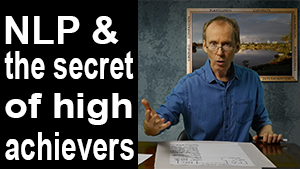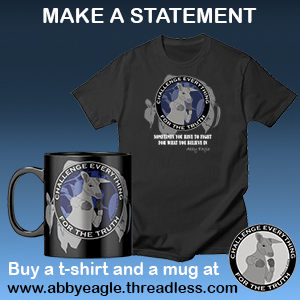
Learn to manage anger and resolve relationship conflict using NLP. Learn how to deal with an angry husband. Phone 07 5562 5718 or email Abby Eagle to book a free 20 minute telephone or Skype consultation. Learn about anger management and personality type - NLP Coaching and Hypnotherapy, NLP anger management Gold Coast, Robina. Online coaching available on Skype.
How to Deal With Anger Using NLP and Hypnotherapy
By Abby Eagle (2018)
Fear and anger are two primary emotions that we all experience at some time or other. They are hardwired and part of the ‘fight or flight’ response in the amygdala in the back of the brain. Some people have moderate fear and anger responses while others tend to have a propensity towards fear or anger. Those on the fear side of the continuum will tend to experience higher levels of anxiety than the norm while those on the anger side of the continuum will tend to experience higher levels of anger than the norm.
Even though all humans are hardwired for fear and anger responses this does not mean that you can not learn how to moderate your responses. And this is just one of many areas where Neuro Linguistic Programming (NLP) excels. Everyone experiences negative emotions at sometime in their life. However, if it continues to affect you into adult hood then you can clear it using the following procedure. (Note that this is just a simplified summary of the NLP technique used.)
1. Name the emotion.
2. Identify three memories where you experienced that emotion.
3. Step back into each of the memories for a moment to reconnect with it.
4. Step out of the memory and come back to the present moment.
5. Identify the earliest time you experienced the negative emotion. We do that by asking a question of the unconscious mind.
6. Get a sense that you can float up out of your body and float above time.
7. Float back over your timeline until you arrive at the earliest event.
8. Preserve the positive learnings and allow the unconscious mind to come to a new understanding.
9. Float back into a neutral space.
10. Look back towards the first event and notice that the negative emotion has disappeared all the way up along the timeline up to now and into the future.
11. Update the entire past in the light of the healing.
12. Update the entire future in the light of the healing.
13. Future pace your learnings.
In addition to the aforementioned timeline procedure you can also clear a negative emotion by dropping under it and then drop under the emotion that is underneath it and so on, following a chain of negative emotions until you reach a positive state. (The two aforementioned techniques were developed by Tad James.)
Neuro-Semantics (Michael Hall) also provides additional tools in terms of mapping the meaning. When you think of it, when the world meets our expectations we feel okay. When the world exceeds our expectations we feel great but when the world falls below our expectations we may feel a negative emotion like distress or anger. The solution is to understand that you are the meaning maker. Some event happens in the world and you give meaning to that event. Your response could be fear or anger or a number of other negative emotions but you are the one who has the experience. You are the one who gives meaning to the event. Even though part of the response may be hard wired we work under the assumption that you are the meaning maker. To think otherwise would not be useful. And I still remember back in the late 1980’s – Richard Bandler talking in terms of usefulness.
So you give meaning to an event. Perhaps your response is anger. Perhaps you are justified in feeling anger but does it serve you? If not, then by exploring the meaning associated with the event you can work to change how you think about the event such that you learn to create a more functional state of mind.
Typically people only reach out for help when their anger begins to affect their relationships with a loved one. In some cases the anger has led to violence. This is sad because learning to manage one’s emotions is not that difficult.
I recommend that everyone start by taking a number of personality tests. I recommend the Personality Hacker version of the Myers Briggs; Jordan Peterson’s Big Five Test; Roger Hamilton’s Wealth Dynamics Profile, and last but not least NLP Meta Programs. You can find links to all of these from Abby Eagle’s website.
So you learn about personality type and then you get your friends, family and work colleagues to take the same tests. Then you go online and look for a youtube video that draws a comparison between your personality type and the personality type of your friend. As you explore the differences in personality type you will find that a lot of things will fall into place. You may discover that the reason you are in conflict with some else is because you think in a different way.
In addition to exploring personality type you should also look at your passions and interests. If you share the same passions and interests then it is more likely that you can build rapport. But if you have difference personality types then how you go about the same activity can be quite different.
And then we get to values. Values are the reason why you do what you do. Values determine every decision that you make. Values motivate you towards or away-from things. If there is a difference in values between you and another then it is unlikely that you will enjoy each others company. And if you have to spend time with a person whose values differ to yours then it will not be a fulfilling relationship. If you want some help with anger management then feel free to contact myself – Abby Eagle using the contact form - top right of this page.
Share With Friends
| DISCUSSION GROUPS | |
|---|---|
 |
|
| NLP Future Selfing | |
| NLP, Hypnotherapy & Meditation | |
| NLP Peace Mapping | |
| Facebook Discussion Group | |
| The secret of high achievers |
|---|
 |
| How to build a powerful team |
 |
| Learn the NLP Meta Model |
 |
| How I stopped drinking alcohol. |
 |
| How to coach yourself using NLP. |
 |



